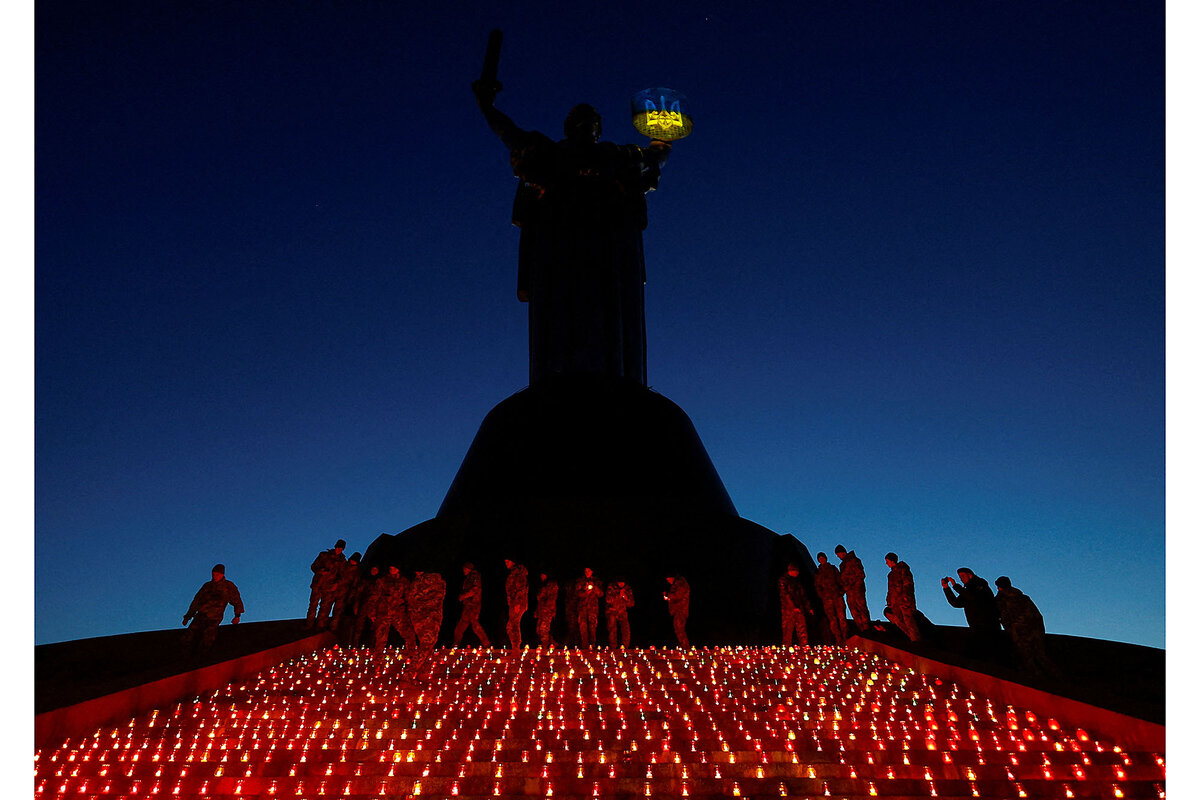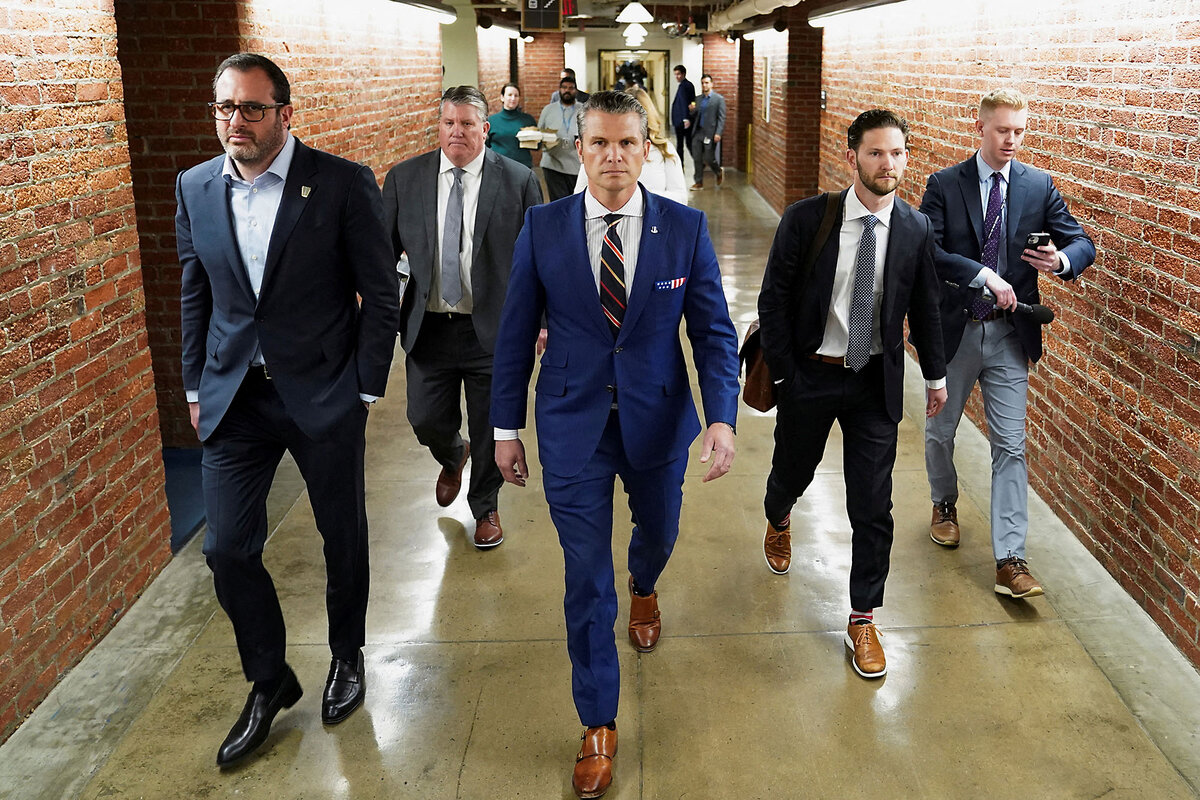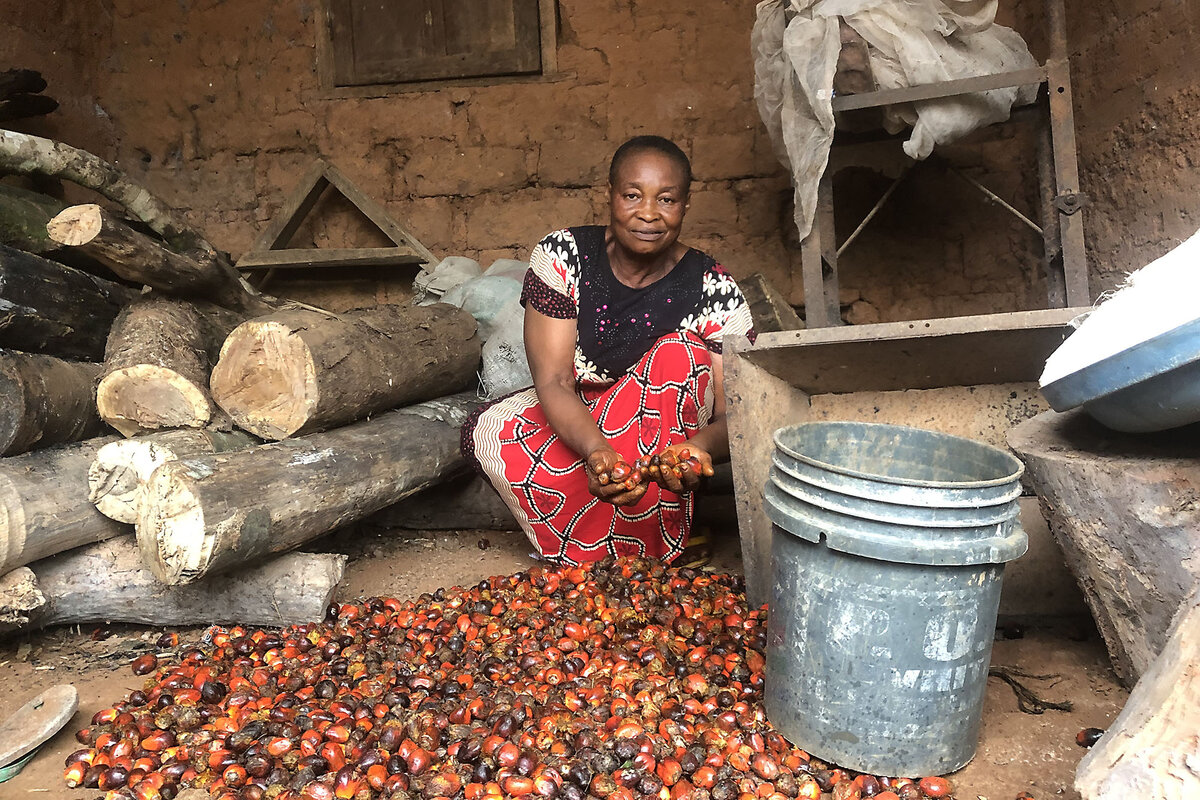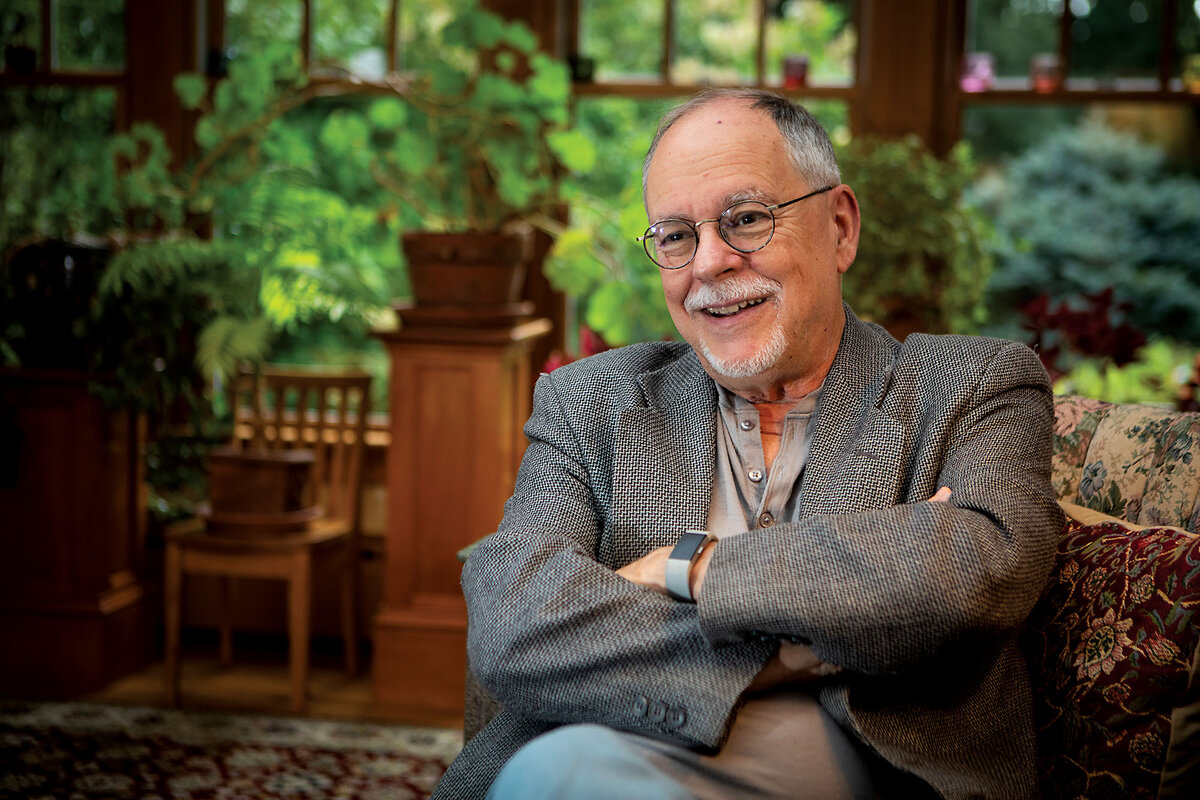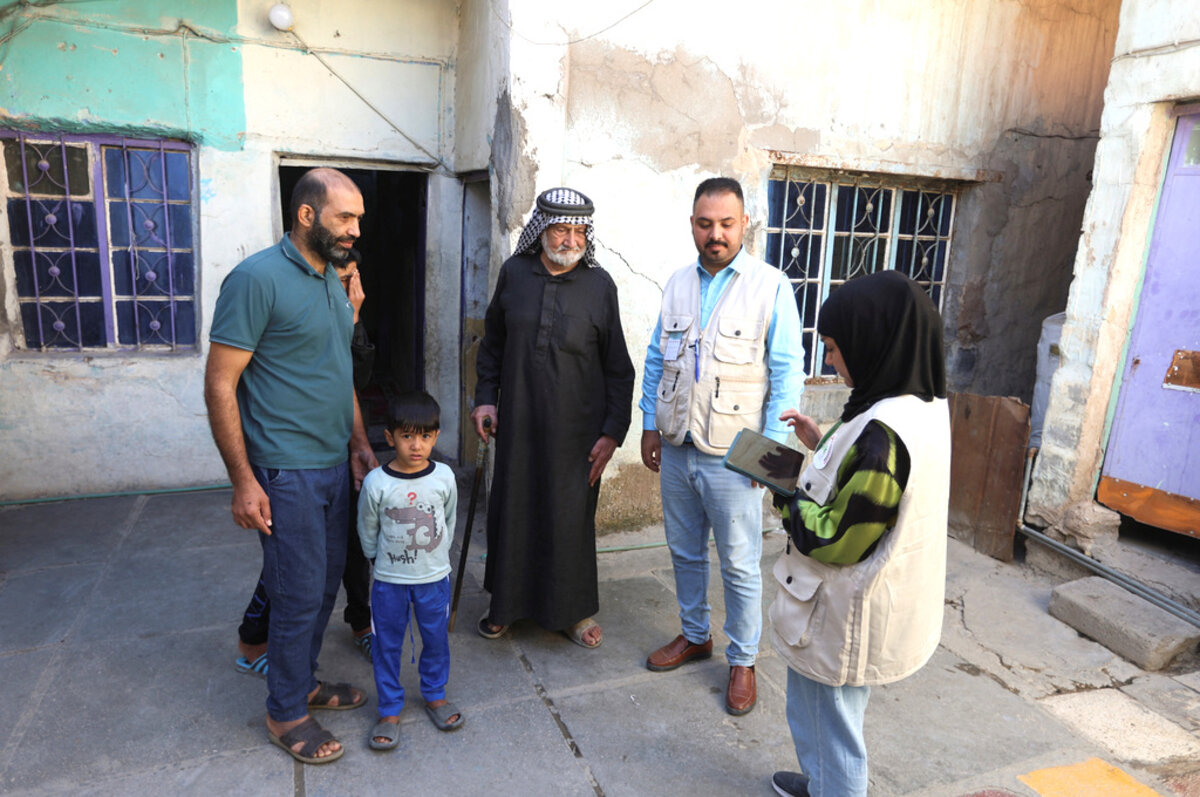-
Matt Gaetz out of running: The Republican congressman withdraws as President-elect Donald Trump’s pick for attorney general following continued scrutiny over a federal sex trafficking investigation.
- Related Monitor story: Mr. Gaetz’s withdrawal marks the first major setback for the incoming president and a sign that there are still lines that Senate Republicans won’t cross. Cameron Joseph reports.
- Jobless claims drop: The number of Americans applying for unemployment benefits fell again last week, remaining near seven-month lows. The number of Americans still collecting jobless benefits rose, however, for the week of Nov. 9.
- Speaker sets bathroom rule: House Speaker Mike Johnson declares that lawmakers and staff will have to use the restroom corresponding with their biological sex. Sarah McBride, the first transgender person elected to Congress, arrives soon on Capitol Hill.
- Storm hits U.S. Pacific Northwest: Rain and snow are pummeling the region amid the effects of a bomb cyclone.

Why is Christian Science in our name?
Our name is about honesty. The Monitor is owned by The Christian Science Church, and we’ve always been transparent about that.
The Church publishes the Monitor because it sees good journalism as vital to progress in the world. Since 1908, we’ve aimed “to injure no man, but to bless all mankind,” as our founder, Mary Baker Eddy, put it.
Here, you’ll find award-winning journalism not driven by commercial influences – a news organization that takes seriously its mission to uplift the world by seeking solutions and finding reasons for credible hope.
Explore values journalism About usMonitor Daily Podcast
- Follow us:
- Apple Podcasts
- Spotify
- RSS Feed
- Download
Poachers and fires threaten the forest community of Olum, Nigeria. So does illegal logging, which robs wildlife of habitat and can trigger mudslides. Lucrative for outside firms, the practice also pays off for some in the community who help them.
Others take a longer view, and choose to exert agency. Contributor Saint Ekpali reports today on a remarkable band of women. The land has given them food, remedies, and what wood they need. In return, they now go on patrol, giving protection to the forest they love.
Already a subscriber? Log in
Help fund Monitor journalism for $11/ month
Monitor journalism changes lives because we open that too-small box that most people think they live in. We believe news can and should expand a sense of identity and possibility beyond narrow conventional expectations.
Our work isn't possible without your support.
News briefs
Today’s stories
And why we wrote them
( 6 min. read )
Should Ukraine relinquish territory seized by Russia in return for an end to fighting? Opposition had been strong throughout the long war, but Ukrainians are shifting on whether their territory is inviolate. Still, distrust of Vladimir Putin runs deep.
( 5 min. read )
With tens of thousands of Palestinians in Gaza on the brink of starvation, the International Criminal Court has issued arrest warrants against Israeli Prime Minister Benjamin Netanyahu and his former defense minister for “impeding humanitarian aid.” Meanwhile, other obstacles to aid also block its distribution.
( 7 min. read )
The U.S. Senate has always voted on whether to confirm a president’s nominees for major posts. It’s a key check on presidential power. President-elect Donald Trump’s allies think they may have a work-around.
Patterns
( 4 min. read )
Delegates to the COP29 climate conference in Azerbaijan are finding it difficult to agree on how much money poor countries need to deal with climate change. That’s partly because some leading countries appear not to believe any longer in shared global climate action.
( 5 min. read )
Nigeria, like much of the world, is losing its trees at a rapid rate. For one group of women here, enough was enough.
( 5 min. read )
Fairy tales often present characters as either good or bad. “Wicked” author Gregory Maguire asks readers to let go of binary thinking as they consider morality.
The Monitor's View
( 2 min. read )
In early November, one of the most revered spiritual leaders in the Middle East, the Shiite cleric Ayatollah Ali al-Sistani, issued a rare guidance to his home country, Iraq. It came soon after reports that neighboring Iran might use militias under its control in Iraq to rain missiles and drones on Israel.
His advice? That the Iraqi people, especially their “informed elites,” must exercise more “competence and integrity” in governance and improve the rule of law in fighting corruption. His most specific message, however, was that any arms in Iraq – notably those of the Iran-backed Islamic Resistance in Iraq – must be held exclusively under the authority of the elected government in Baghdad.
Iraqis still have a “long path” ahead to achieve all of this, stated Mr. al-Sistani, who has long been a proponent of civic peace and secular democracy. “May God help them in this endeavor.”
His guidance has echoed across Iraq, a country trying hard not to get caught up in a low-boil war of retaliatory attacks between Israel and Iran. Prime Minister Mohammed Shia’ al-Sudani has pleaded with Iran not to use Iraqi soil in the conflict. He has signed an agreement with Saudi Arabia on military cooperation. And he has tried to rein in the pro-Iran militias.
The ayatollah’s broader message is that Iraq can enjoy a protective shield if its people “do their best to secure a better future for their country, one where everyone enjoys security, stability, advancement, and prosperity.”
Shoring up a country’s “integrity,” to use his word, has often helped a country defend itself from the actions of nearby aggressors. In the face of Russian threats, Moldova has improved its democracy and unity. So has the Philippines after China encroached on its territory. Like Iraq, Jordan has struggled for unity so that it does not become “the theater of a regional war,” as King Abdullah II has warned.
Mr. al-Sistani, known by the title marja (guide), does not believe clerics should rule, as they do in Iran. In his Shiite-majority country, he sees his role as supporting the people to live up to their civic and religious ideals. Right now, during the crossfire of a violent conflict around them, Iraqis need the armor of integrity. Sometimes the best deterrence is invisible.
A Christian Science Perspective
Each weekday, the Monitor includes one clearly labeled religious article offering spiritual insight on contemporary issues, including the news. The publication – in its various forms – is produced for anyone who cares about the progress of the human endeavor around the world and seeks news reported with compassion, intelligence, and an essentially constructive lens. For many, that caring has religious roots. For many, it does not. The Monitor has always embraced both audiences. The Monitor is owned by a church – The First Church of Christ, Scientist, in Boston – whose founder was concerned with both the state of the world and the quality of available news.
( 3 min. read )
When we let a recognition of God, good, as ever present inspire thankfulness in our hearts, we’re inevitably blessed.
Viewfinder
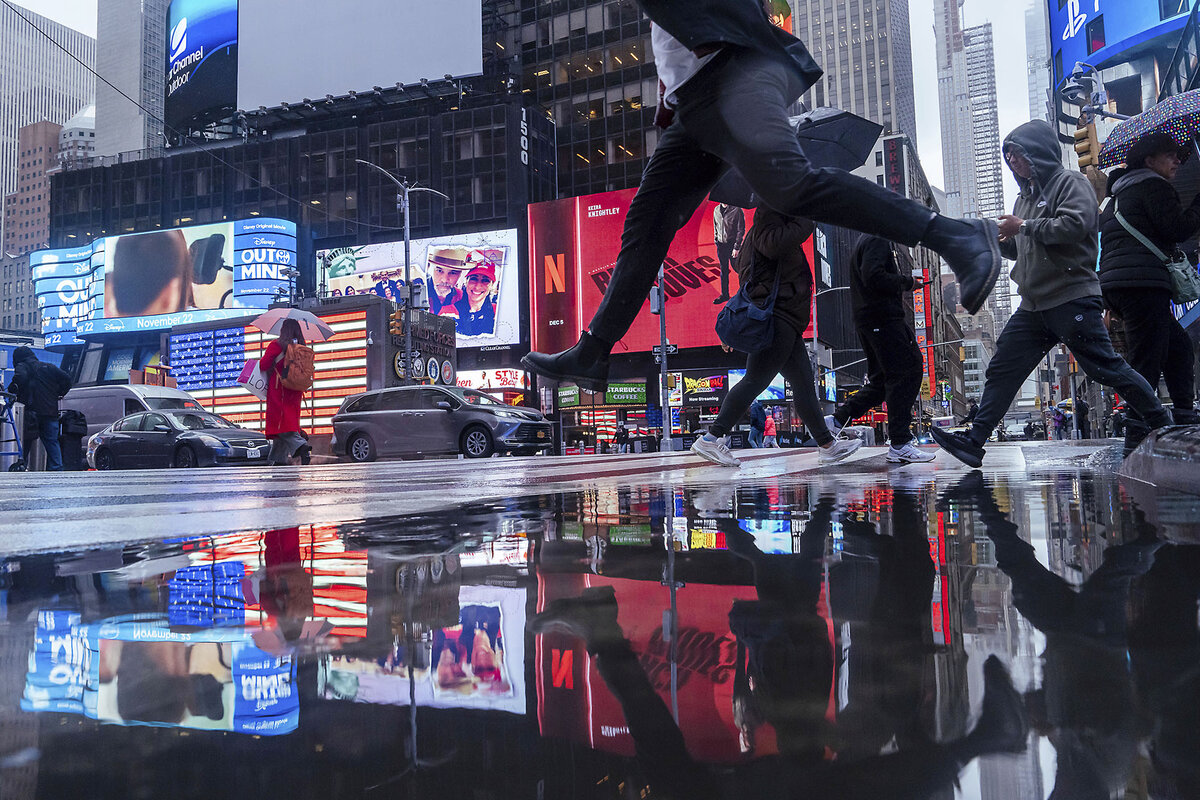
A look ahead
Thanks for spending part of your Thursday with us. We’re working on a story for tomorrow about the energy level of “the resistance” on the left since the U.S. presidential election, relative to where it was eight years ago. And we’re prepping a podcast chat with our food writer about next week’s Thanksgiving holiday in the U.S.
Also a quick note: In Tuesday’s story about rural broadband access, it wasn’t clear which place has built its own network. The town is Otis, Massachusetts.




